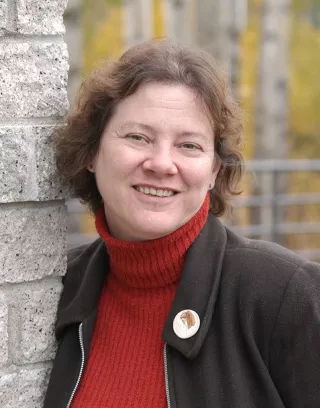
Healy, Dr. Theresa
PhD
Biography
Dr. Theresa Healy has lived and worked in Northern BC since 1994 holding a variety of appointments at UNBC since her arrival. She has a wide range of experiences with community engagement and community-based research related to healthy community development. She considers herself fortunate to have worked with many skilled and generous teachers who are passionate about change and increasing community well-being. In particular, she has been honoured to serve many First Nations communities and groups. The powerful changes that can emerge when communities lead the way are transformative. For this reason, she is especially interested in participatory theories, tools, and methods such as Participatory Action / Community Based Research, empowerment theories for community consultation methods, innovative and creative outreach (photovoice, Digital Story Telling) and engagement strategies (e.g., Open Space, World Café, Theory of Change, Graphic facilitation), use of social media (story mapping, Storify, Hackpad, etc.). She is also a reflective practitioner and a facilitator interested in team building and collaborative action. She brings these interests and experiences to her Assistant Professor appointment at UNBC in the School of Environmental Planning where she teaches upper-level classes related to experiential learning and concrete tools and methods drawn from her 20+ years’ experience in Northern BC. She co-supervises graduate students and sits on graduate student committees and can also serve as an external examiner. Capacity to support community leadership and direction means that skills and experience in facilitating community wisdom and vision are crucial and opportunities to learn and practice these are embedded in her classrooms.
Research and expertise
Community engagement, Public participation, First Nations/Indigenous community and environmental planning, Race and gender, Innovation and creativity in designing methods to suit the audience, Community-centred planning and healthy community development, Innovation in tools and methods, Indigenous approaches to planning, Organizational change, Curriculum design.